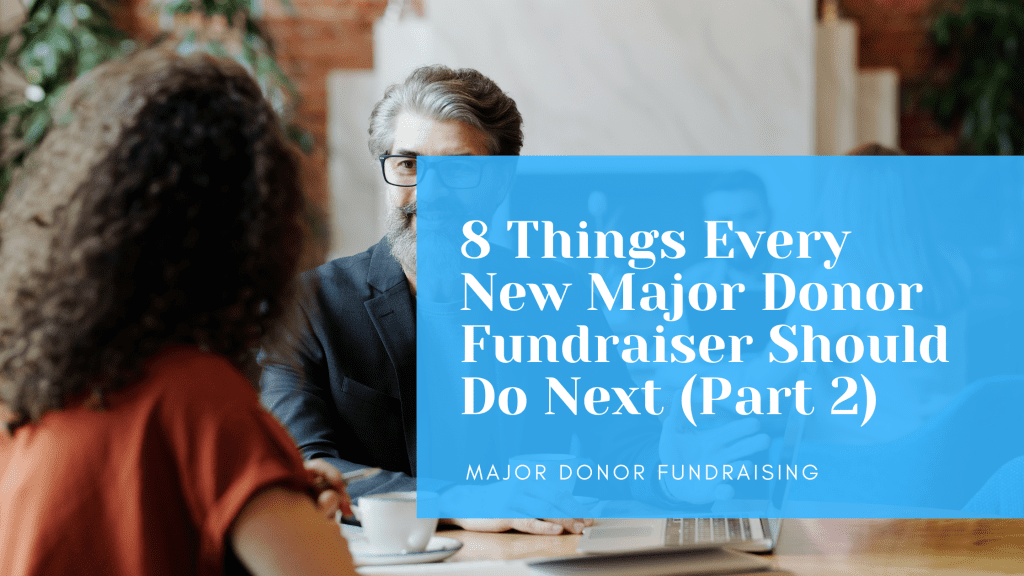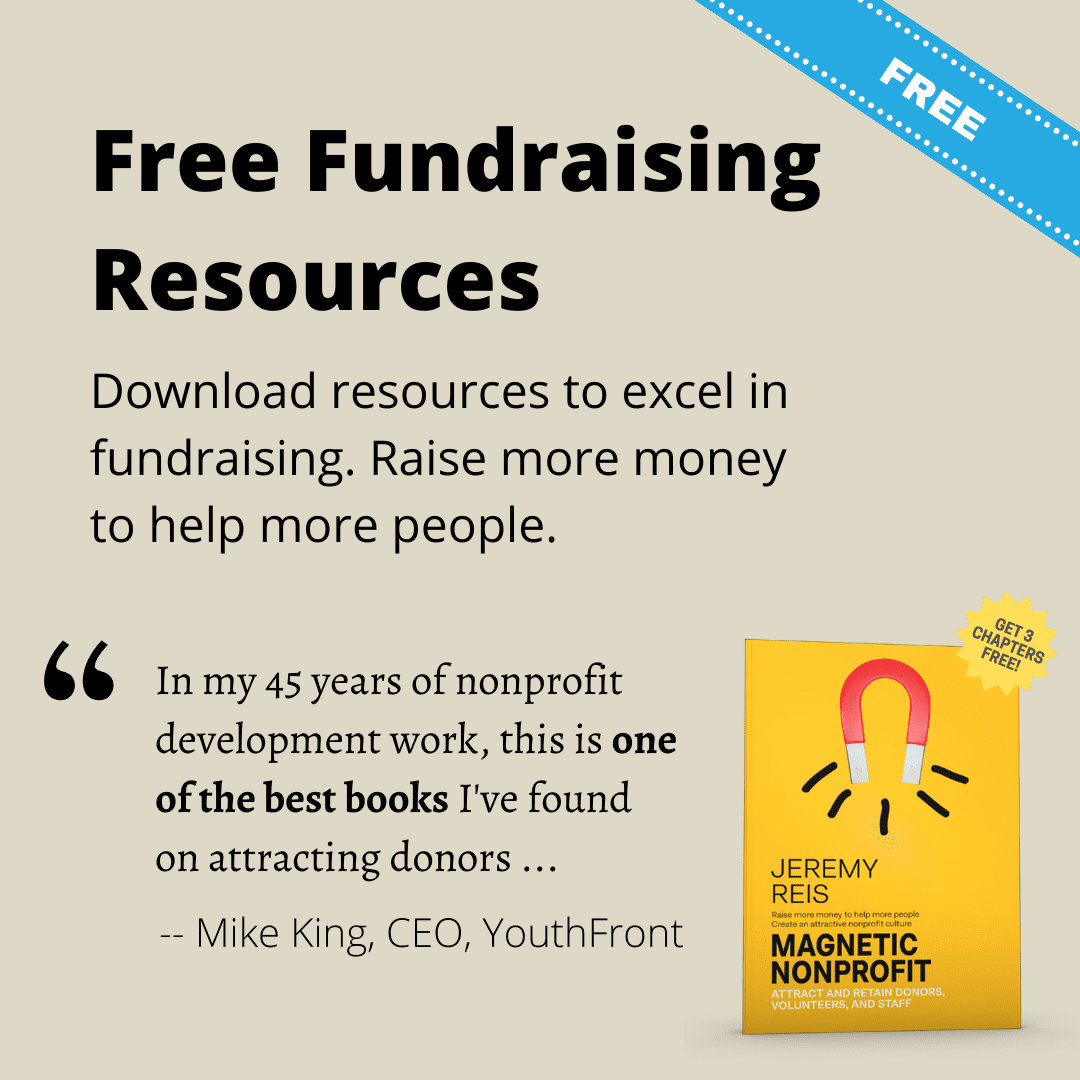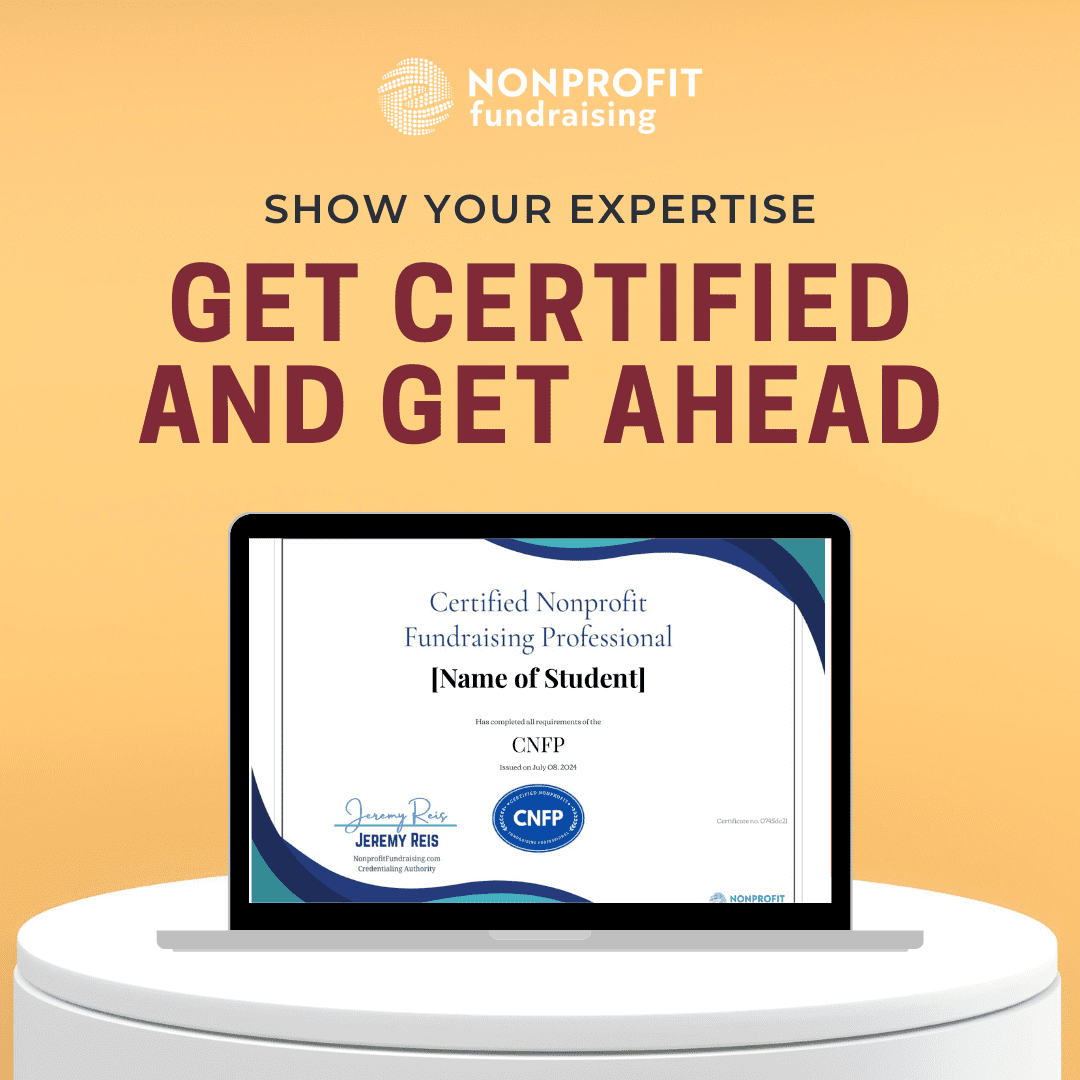Congratulations on your new position as a major donor fundraiser! As you know, this is a vital role within any organization. In this role, you will be responsible for developing and cultivating relationships with major donors. This is no small task, but we are confident that you are up for the challenge. In part 1 of this series, you learned 8 things every new major donor fundraiser should do. To help you hit the ground running in your new role, we have compiled another list of the top 8 things every new major donor fundraiser should do.
9. Research Your Donors
 A step in successfully soliciting a gift from a major donor is to research the prospective donor thoroughly. You should have a firm understanding of their personal background, professional achievements, philanthropic history, and giving capacity before you even pick up the phone to speak with them. The more you know about the prospective donor, the better equipped you will be to build a relationship and ultimately secure a gift.
A step in successfully soliciting a gift from a major donor is to research the prospective donor thoroughly. You should have a firm understanding of their personal background, professional achievements, philanthropic history, and giving capacity before you even pick up the phone to speak with them. The more you know about the prospective donor, the better equipped you will be to build a relationship and ultimately secure a gift.
10. Communicate Regularly with Your Donors
Once you have established a relationship with your donor, it is important to communicate with them on a regular basis. Thank them for their contributions, keep them updated on how their donations are being used, and invite them to events that might be of interest to them. This regular communication will help keep your donors engaged and interested in supporting your organization.
11. Ask for Feedback
Donors are an important source of feedback about your organization’s fundraising efforts. Don’t be afraid to ask them for their input! What do they like about your organization? What do they think could be improved? How can you better meet their needs? Their feedback will be invaluable as you work to improve your fundraising strategy.
First, it is important to establish rapport with your donors. You want them to feel comfortable sharing their thoughts and opinions with you. One way to do this is to thank them for their donation and let them know how much their support means to you and the organization. You can also ask them how they heard about the organization and why they decided to donate. Establishing rapport will make it more likely that donors will be open and honest with you when giving feedback.
Next, you will want to ask specific, thought-provoking questions. vague questions such as “What did you think of our fundraiser?” or “How could we improve?” are not likely to elicit helpful responses. Instead, try asking specific questions such as “What was your favorite part of the fundraiser?” or “What made you decide to donate?”. Asking questions like these will help you identify both the positive aspects of your fundraiser as well as areas that need improvement.
Finding a fundraising mentor can also help you discover what you can do to improve.
Finally, it is important to listen to what your donors are saying and take their feedback seriously. This may seem obvious, but it is surprising how often fundraisers fail to do this. Thank your donors for their input and let them know that their suggestions will be taken into consideration in future fundraising efforts.
12. Celebrate Successes
Don’t forget to celebrate your successes along the way – both big and small! Getting a big donation from a major donor is obviously cause for celebration, but don’t forget to celebrate the smaller milestones too. For example, if you’ve been working on a particular donor for six months and they finally make a small donation, that’s something worth celebrating! Recognizing your achievements will help keep you motivated as you continue working towards your fundraising goals.
No fundraising effort is ever truly successful without the help of dedicated team members and volunteers. If you want to properly celebrate your successes, then it’s crucial that you take the time to acknowledge these individuals for their hard work and contributions. Without them, you wouldn’t have been able to accomplish what you did, so make sure they know that their efforts are appreciated. You can do this by sending personal thank-you notes, hosting an event to honor them, or simply expressing your gratitude during team meetings or individual conversations. Whatever method you choose, just make sure that they know how much you value their help.
13. Document Everything
In order to ensure that you are meeting all of the requirements of a successful fundraiser, it is important to document everything (phone calls, meetings, emails, etc.). This documentation will not only help you stay organized; it will also provide valuable information that can be used to assess and improve your fundraising strategies over time.
One of the most important things you can do as a fundraiser is to document everything in your CRM. A CRM (customer relationship management) system is a tool that allows you to track your interactions with donors, prospects, and other key constituents. Having all of this information in one place will save you a lot of time and energy later on. And, if you ever need to reference something from a previous interaction, you’ll know exactly where to find it.
14. Discover What Donors Want
It is also important to determine what motivates the prospective donor to give back. What causes or charities are they passionate about? What drives their philanthropy? Once you have answers to these questions, you can tailor your solicitations accordingly and appeal directly to their interests and passions.
In addition to understanding what motivates a prospective donor to give, it is also important to find out what they hope to achieve through their gift. What difference do they want to make in the world? How do they want to be remembered? Again, understanding these things will help you tailor your solicitations in a way that appeals directly to the prospective donor’s interests and passions while also meeting your organization’s needs.
Not all donors are alike, so it’s important to make sure that each ask is tailored specifically to meet the interests and needs of that particular donor. One-size-fits-all asks are not likely to be successful; take the time to personalize each request based on what you know about the donor’s interests and philanthropic goals.
15. Learn from Rejection
It’s inevitable that you will hear “no” from some of your donors at some point in time; that’s just part of the process! But don’t let rejection discourage you—use it as an opportunity to learn and improve your fundraising strategies. What could you have done differently in that particular instance? What can you do differently going forward? Learning from your mistakes will help you become a more successful fundraiser in the long run.
16. Create Personalized Engagement Plans
Once you have identified your potential prospects, it’s time to start engaging with them. But don’t just reach out for the sake of reaching out—make sure each interaction is meaningful and personalized. Consider what you want to achieve from each interaction and create an engagement plan accordingly. For example, if you’re trying to establish a relationship with a potential donor, your engagement plan might include attending their events, sending handwritten notes, or inviting them to coffee.
Being a successful major donor fundraiser requires hard work, dedication, and passion. By taking care of the basics from the start, you set yourself up for success in this crucial role within any development team!
Learn a 90-day plan for a new major gifts officer in this article to make the most out of your new role.

